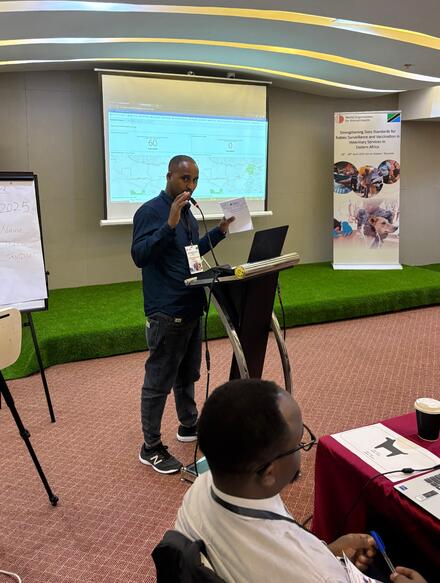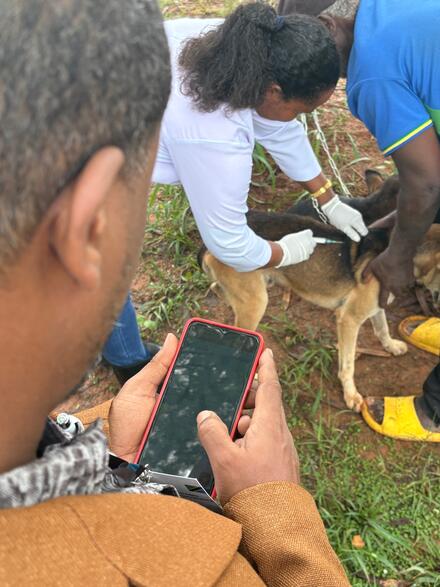GARC helps to strengthen rabies surveillance in East Africa
Introduction
In April 2025, GARC was invited to participate in a workshop with the objective of strengthening data standards for rabies surveillance and vaccination across Eastern Africa. The workshop was organized by the World Organisation for Animal Health (WOAH) and brought together the national animal rabies focal points from twelve countries: Burundi, Comoros, Djibouti, Eritrea, Ethiopia, Kenya, Rwanda, Somalia, South Sudan, Sudan, Tanzania, and Uganda.
Zero by 30: The urgent need for data

The April workshop formed part of an ongoing regional effort to eliminate dog-mediated rabies by 2030. This meeting followed on from the previous regional meetings in 2024 where the urgent need for accurate, standardized, and shareable data was highlighted. High-quality rabies surveillance data enable countries to monitor progress, to attract investment, and to implement national strategic plans more effectively. This led to the 2025 workshop having three specific objectives:
- To strengthen member countries’ capacity to more effectively capture rabies surveillance and rabies vaccination data.
- To expand practical skills relating to the use of electronic/digital technologies and toolkits which will enable veterinary services to support rabies surveillance and vaccination campaigns more efficiently within communities.
- To promote inter-country cross-learning and best practices, as well as encourage international partnerships, to enhance regional momentum in eliminating rabies by 2030!
Expertise, digital tools, and practical experience
Dr Andre Coetzer, GARC’s Technical Director, attended the workshop as a trainer and facilitator during which he introduced participants to the GARC Data Platform. The GARC Data Platform helps users to capture and visualize real-time rabies data collected at community-level. The Platform has already been successfully implemented in other regions and offer a scalable, user-friendly alternative to paper-based systems for rabies data capturing. Dr Coetzer also facilitated discussions to help participants understand why data matters, how to improve the quality of their data, and how data collection processes work.

On the second day of the workshop, participants travelled to a nearby community for practical, hands-on training of the Platform during a local dog vaccination campaign. During this outing, GARC gave participants the opportunity to experience the real-world use of digital surveillance tools to demonstrate how digital tools can help to collect more accurate data in less time compared to paper-based processes.
To conclude the workshop, Dr Coetzer co-facilitated sessions on data analysis and how the visualized data can be used to show various aspects of the rabies elimination process. He showed participants how to generate dashboards and interpret trends from sample data; skills that support evidence-based decision-making. This practical component was key in building capacity, especially for those participants working in countries where digital skills and infrastructure are still being developed.
Rabies does not respect borders
In East Africa most countries face challenges such as limited infrastructure, fragmented data systems, and weak intersectoral coordination. At the workshop, participants were provided with the opportunity to network with representatives from other countries because cross-country collaboration is critical for rabies elimination.
Ongoing support
By participating in these workshops, GARC shows our commitment to our mission to support rabies-endemic countries with the tools, training, and expertise needed to eliminate rabies. By helping national teams transition from passive, paper-based surveillance to proactive, digital data management systems, GARC is empowering governmental stakeholders in Eastern Africa to better measure their progress and make decisions informed by science. Data matters! But data is also more than just numbers, it is the foundation for strategic action. With initiatives like this workshop, East African countries who embrace these tools and resources are taking critical steps toward a rabies-free future.